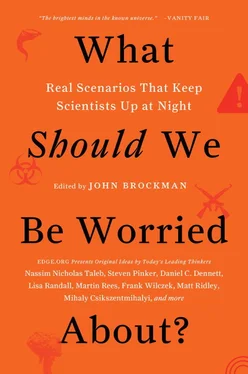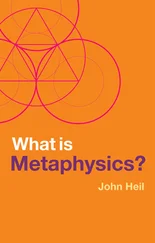Mathematician and economist; managing director, Thiel Capital
Over the past two decades I have been involved with the war on excellence.
I know that those few of us involved in the struggle are deeply worried about the epidemic of excellence, precisely because excellence compels its hosts to facilitate its spread by altering their perception of its costs and benefits. Most educated people have come to revere the spending of the fabled “10,000 hours” in training to become respected jacks of one trade. Large numbers of Americans push their inquisitive children away from creative play so that they can excel in their studies, in hopes that they will become excellent candidates for admission to a center of excellence and join the pursuit of excellence upon graduation.
The problem with all this is that we cannot excel our way out of modern problems. Within the same century, we have unlocked the twin nuclei of both cell and atom and created the conditions for synthetic biological and even digital life with computer programs that can spawn both descent and variation on which selection can now act. We are in genuinely novel territory, which we have little reason to think we can control; only the excellent would compare these recent achievements to harmless variations on the invention of the compass or steam engine. So, surviving our newfound godlike powers will require modes that lie well outside expertise, excellence, and mastery.
Going back to Sewall Wright’s theory of adaptive landscapes of fitness, we see four modes of human achievement paired with what might be considered their more familiar accompanying archetypes:
A) Climbing—Expertise: Moving up the path of steepest ascent toward excellence for admission into a community that holds and defends a local maximum of fitness.
B) Crossing—Genius. Crossing the “Adaptive Valley” to an unknown and unoccupied even higher maximum level of fitness.
C) Moving—Heroism. Moving “mountains of fitness” for one’s group.
D) Shaking—Rebellion. Leveling peaks and filling valleys for the purpose of making the landscape more even.
The essence of genius as a modality is that it seems to reverse the logic of excellence. Sometimes we must, at least initially, move away from apparent success and headlong into seeming failure to achieve outcomes few understand are even possible. This is the essence of the so-called Adaptive Valley, which separates local hills from true summits of higher fitness. Genius, at a technical level, is the modality combining the farsightedness needed to deduce the existence of a higher peak with the character and ability to survive the punishing journey to higher ground. Needless to say, the spectacle of an individual moving against his or her expert community, away from carrots and toward sticks, is generally viewed as a cause for alarm regardless of whether that individual is a malfunctioning fool or a genius about to invalidate community groupthink.
The heroes and rebels don’t even accept the landscape as immovable but see dunes of fitness to be shifted by a sculpting or leveling of the landscape, with an eye toward altering the fitness of chosen populations.
None of these modes is intrinsically good or bad. Successful individuals generally maintain a portfolio of such modalities dominated by a leading chosen modality. But the first mode of excellence-driven expertise has, with institutional support, transformed into something unexpected, like a eusocial networked supercompetitor crowding out genius and heroism for institutional support within the research enterprise. An obviously stupid idea, like “self-regulating financial markets,” now spreads frictionlessly among fungible experts inhabiting the now interoperable centers of excellence within newspapers, government, academe, think tanks, broadcasting, and professional associations. Before long, the highest levels of government are spouting nonsense about “the great moderation” in front of financial disaster.
I have searched almost the entire landscape of research and been shocked to find excellence having almost universal penetration, with the possible exceptions of Silicon Valley and hedge funds. Excellence, as the cult of history’s second string, brooks no argument. As a pathogen, it spreads quickly, as if a virus, preferring to lie in wait on Ivy League sheepskin or other vectors of infection.
In the past, many scientists lived on, or even over, the edge of respectability, with reputations as skirt-chasing, hard-drinking, bigoted, misogynistic, childish, slutty, lazy, politically treacherous, incompetent, murderous, meddlesome, monstrous, and mentally unstable individuals, such as (respectively) John von Neumann, George Gamow, William Shockley, James Watson, Albert Einstein, Marie Curie, Stephen Smale, J. Robert Oppenheimer, Francis Crick, Paul Ehrenfest, Serge Lang, Edward Teller, and Alexander Grothendieck, who fueled such epithets with behaviors indicating that they cared little for what even other scientists thought of their choices.
But such disregard, bordering on deviance and delinquency, was often outweighed by feats of genius and heroism. We have spent the last decades inhibiting such socially marginal individuals or chasing them out of our research enterprise and into startups and hedge funds. As a result our universities are increasingly populated by the over-vetted specialist and becoming the dreaded centers of excellence that infantilize and uniformize the promising minds of greatest agency.
If there is hope to be found in this sorry state of affairs it is in the rise of an archipelago of alternative institutions alongside the assembly line of expertise. This island chain of mostly temporary gatherings has begun to meet the need for heroism and genius. The major points of the archipelago are heterogeneous compared to their ivy-covered counterparts and include Burning Man, Foo Camp, TED, Breakout Labs, Edge , Sci Foo, Y Combinator, the Thiel Fellowship program, INET, FQXi, and Summit Series, to name a few—as well as some that are even more secretive.
In the wake of the Challenger disaster, Richard Feynman was mistakenly asked to become part of the Rogers Commission investigating the accident. In a moment of candor, Chairman Rogers turned to Neil Armstrong in a men’s room and said, “Feynman is becoming a real pain.” Such is ever the verdict pronounced by steady hands over great spirits. But the scariest part of this anecdote is not the story itself but the fact that we are, in the modern era, now so dependent on old Feynman stories, having no living heroes with which to replace him: the ultimate tragic triumph of runaway excellence.
JESSICA L. TRACY
Associate professor of psychology, University of British Columbia
I worry about the recent epidemic of lying and cheating that has infected public discourse in diverse domains. Think of science writer Jonah Lehrer’s fabrication of quotes in his 2012 book, Imagine: How Creativity Works —which was subsequently pulled from shelves by its publisher. Or social psychologist Diederik Stapel’s fabrication of empirical data reported in more than fifty published articles—most of them eventually retracted by the journals. Or Lance Armstrong’s years of competitive cycling powered by illegal doping, resulting in the removal of his seven Tour de France victories and a lifetime banishment from the sport.
These problematic behaviors resulted either from a technological advance or a shift in the social climate. The current mass appeal of social psychology and social-science literature created a high payoff for smart and creative people like Lehrer and Stapel, who were able to attain a level of fame from writing social science—a level until recently inconceivable. Armstrong was lucky (or unlucky) enough to come of age in cycling at the time when blood-doping technology became largely undetectable. But changes like these are only the proximate causes of the epidemic. There is a broader, deeper psychological cause, and it is far from recent; it has been part of human nature throughout our evolutionary history. The psychological mechanism motivating and facilitating these corrupt behaviors is hubristic pride —the arrogance and egotism that drive people to brag, lie, cheat, and bully others to get ahead.
Читать дальше












